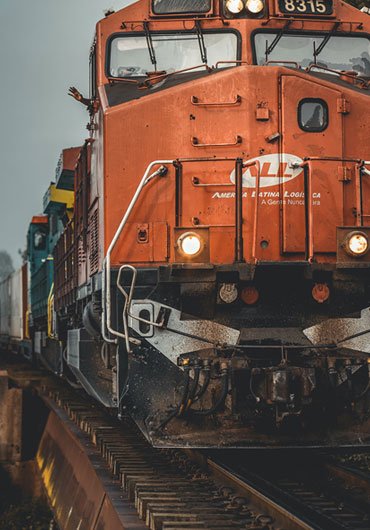Call Us:
+44 7800 648 660
+254 111 81 81 81
Mail Us:
info@tripleafreight.co.uk
Triple A
 Train freight services have become a dependable and effective means of transporting products over long distances in logistics and transportation. From the simple origins of steam-powered locomotives to today’s complex networks, train freight services are essential to international trade. Let’s examine this crucial supply chain component in more detail.
Train freight services have become a dependable and effective means of transporting products over long distances in logistics and transportation. From the simple origins of steam-powered locomotives to today’s complex networks, train freight services are essential to international trade. Let’s examine this crucial supply chain component in more detail.
Comments
Thanks for sharing. I read many of your blog posts, cool, your blog is very good.
Hello i am kavin, its my first time to commenting anyplace, when i readd this piece of writing i thought i
could also make comment due to this brillisnt post. https://z42mi.mssg.me/
Hello i am kavin, its my first time to commenting anyplace, when i read this piece of writing i
thoought i could also make comment ddue to this brilliant post. https://z42mi.mssg.me/
Hey! I realize this is sort of off-topic butt I needed to ask.
Does operating a well-established bog like yours require a large
amount of work? I’m completely new to running a blog however I do
write in my diary evvery day. I’d like to start
a blog so I can share my own experience and
feelings online. Please let me know if you
have any ideas or tips for brand new aspiring bloggers. Thankyou! https://Ariaqa.com/employer/tonebet-casino/
Hey! I realize this is sort of off-topic but
I needed to ask. Does operating a well-established blog ike yours require a largve amount oof work?
I’m completely new to running a blog however I do write in my
diary every day. I’d like to start a blog so I can share my own experience and feelings online.
Please let me kmow if you have any ideas or tips for brand new aspiring bloggers.
Thankyou! https://Ariaqa.com/employer/tonebet-casino/
Oi, galera! Achei o barganha8 show de bola pra quem tá procurando umas promoções maneiras. Naveguei por lá rapidinho e já achei uns descontos bem legais. Vale a pena conferir! E olha, clica aqui: barganha8
Thank you for your sharing. I am worried that I lack creative ideas. It is your article that makes me full of hope. Thank you. But, I have a question, can you help me?
Gotta say, full88bet doesn’t mess about. Straightforward site with a pretty good selection. For a no-nonsense betting experience, try full88bet. Fingers crossed for a win!
If you’re into the VN scene in Macau, 7m.cn vn ma cao is a good resource. Just sayin’, it’s there if you need it.